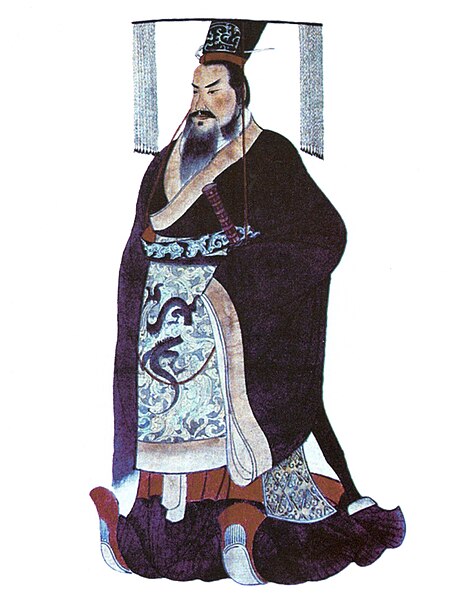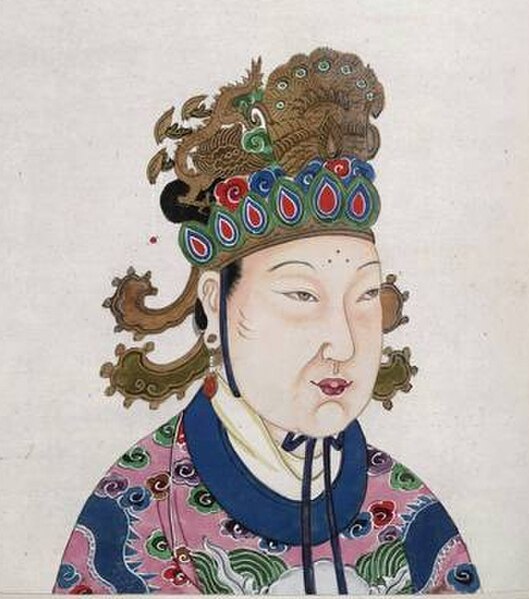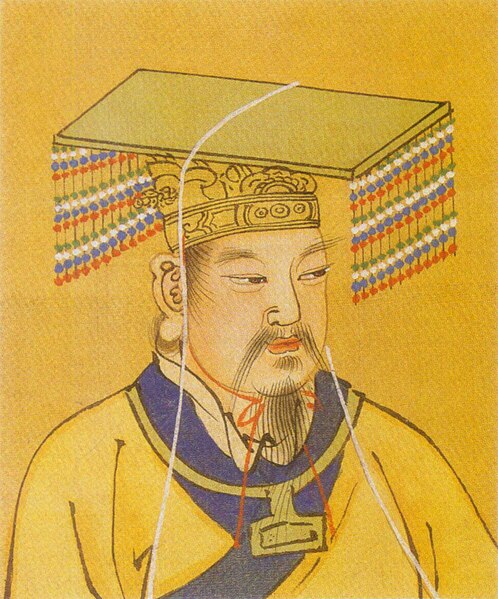Wang Mang, courtesy name Jujun, officially known as the Shijianguo Emperor (始建國天帝), was the founder and the only emperor of the short-lived Chinese Xin dynasty. He was originally an official and consort kin of the Han dynasty and later seized the throne in 9 CE. The Han dynasty was restored after his overthrow, and his rule marked the separation between the Western Han dynasty and Eastern Han dynasty. Traditional Chinese historiography viewed Wang as a tyrant and usurper, while more recently, some historians have portrayed him as a visionary and selfless social reformer. During his reign, he abolished slavery and initiated a land redistribution program. Though a learned Confucian scholar who sought to implement the harmonious society he saw in the classics, his efforts ended in chaos.
Wang Mang
A knife coin issued by Wang Mang
Throughout Chinese history, "Emperor" was the superlative title held by the monarchs who ruled various imperial dynasties. In traditional Chinese political theory, the emperor was the "Son of Heaven", an autocrat with the divine mandate right to rule all under Heaven. Emperors were worshiped posthumously under an imperial cult. The lineage of emperors descended from a paternal family line constituted a dynasty, and succession in most cases theoretically followed agnatic primogeniture.
Qin Shi Huang, the first emperor of China (r. 221–210 BC)
Qin Shi Huang escaping assassination (3rd century AD)
An 18th century depiction of Wu Zetian, the only female emperor of China
Yellow Emperor






